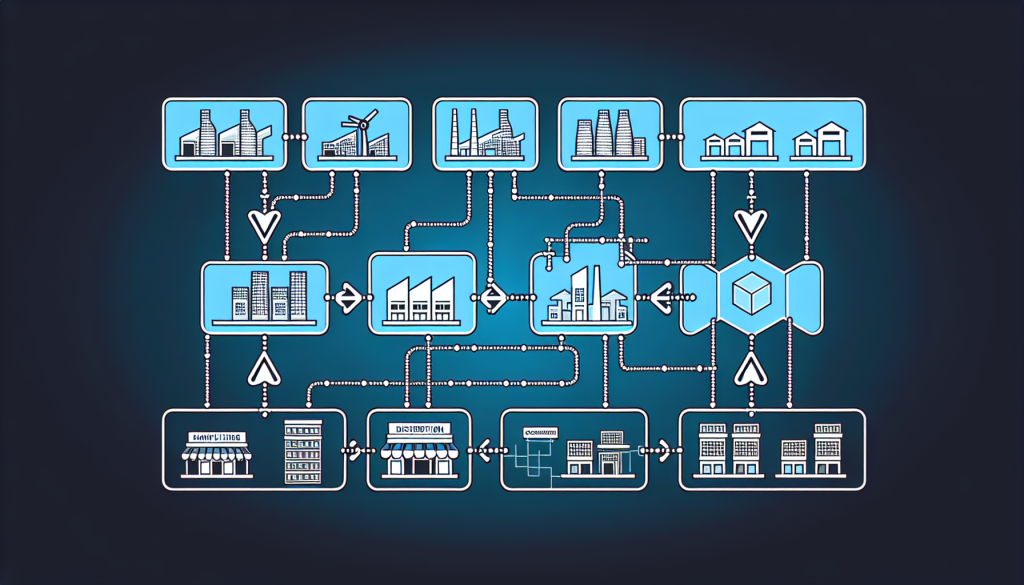/ Feb 04, 2026
Trending


The year 2025 has ushered in a transformative landscape for blockchain technology, especially in the realm of supply chain management. As industries across the globe grapple with increased demand for transparency and efficiency, blockchain has emerged as a critical tool for enhancing supply chain operations. This article delves into recent innovations and the broader implications of blockchain in supply chains, drawing insights from current developments.
In the past, blockchain was primarily associated with cryptocurrencies like Bitcoin and Ethereum. However, its utility has expanded significantly beyond these applications. In 2025, blockchain is increasingly being recognized for its potential to revolutionize various sectors, including supply chain management. This shift is crucial as companies seek ways to optimize logistics, reduce fraud, and improve the traceability of goods.
One of the most significant advantages of blockchain technology in supply chains is its ability to offer unparalleled transparency. With information about product origins, transportation, and delivery recorded in real-time, businesses can trace every step of the supply chain without the risk of tampering. This capability is particularly beneficial in industries such as food, pharmaceuticals, and luxury goods, where provenance and authenticity are critical.
Recent reports highlight that multinational corporations are integrating blockchain solutions to combat counterfeiting and ensure genuine products reach the consumer. For instance, the fashion industry is leveraging blockchain to verify the authenticity of luxury items, thereby protecting brand integrity and consumer trust.
Blockchain’s role in supply chain management is being bolstered by several technological innovations in 2025. Among the most notable is the integration of Internet of Things (IoT) devices with blockchain networks. IoT sensors can capture real-time data on temperature, humidity, and location, which is then securely recorded on a blockchain. This integration ensures that perishable goods, such as vaccines or fresh produce, are maintained at optimal conditions throughout their journey from supplier to consumer.
Smart contracts are another pivotal development within blockchain technology. These self-executing contracts automatically enforce agreements when predetermined conditions are met. In supply chains, smart contracts facilitate automatic payments and shipments, reducing delays and the need for intermediaries. For example, if a shipment reaches its destination and sensors confirm its integrity, payment is released automatically, streamlining the entire transaction process.
Despite its advantages, the adoption of blockchain in supply chains is not without challenges. Regulatory hurdles remain a significant barrier to widespread implementation. Governments worldwide are scrutinizing blockchain technologies to protect against potential security threats and ensure compliance with international trade laws.
In 2025, regulatory bodies in the European Union and North America are working diligently to create frameworks that facilitate the safe and efficient use of blockchain in supply chains. These regulations aim to standardize practices while maintaining a balance between innovation and security.
While Ethereum and Bitcoin largely dominate the blockchain space, other networks like Polkadot, VeChain, and Cardano are making headway in supply chain applications. VeChain, in particular, has gained attention for its robust blockchain solutions designed explicitly for supply chain management. It offers a suite of tools that enable seamless data sharing and process optimization, catering to sectors ranging from logistics to manufacturing.
The progress seen in 2025 signals a promising future for blockchain technology in enhancing supply chains. As industries strive to meet the evolving demands of consumers and regulators, blockchain provides a secure, transparent, and efficient solution. The continuous advancements in IoT integration and smart contract functionality further strengthen its potential impact.
Looking ahead, the convergence of blockchain with other technologies such as artificial intelligence and machine learning could offer even more sophisticated solutions, from predictive analytics to dynamic supply chain modeling. For businesses aiming to stay competitive, embracing these innovations will be crucial.
In conclusion, as blockchain technology continues to mature, its role in transforming supply chains becomes increasingly apparent. The need for transparency, efficiency, and security will drive further adoption, reshaping the global economy in profound ways. By overcoming regulatory challenges and leveraging emerging networks, blockchain stands poised to redefine supply chain management for years to come.
Stay ahead with Blockchainooz! Get daily updates on industry insights, market trends, and innovative blockchain technology—all in one place. Perfect for enthusiasts and investors looking to make informed decisions in the ever-evolving world of blockchain and crypto.